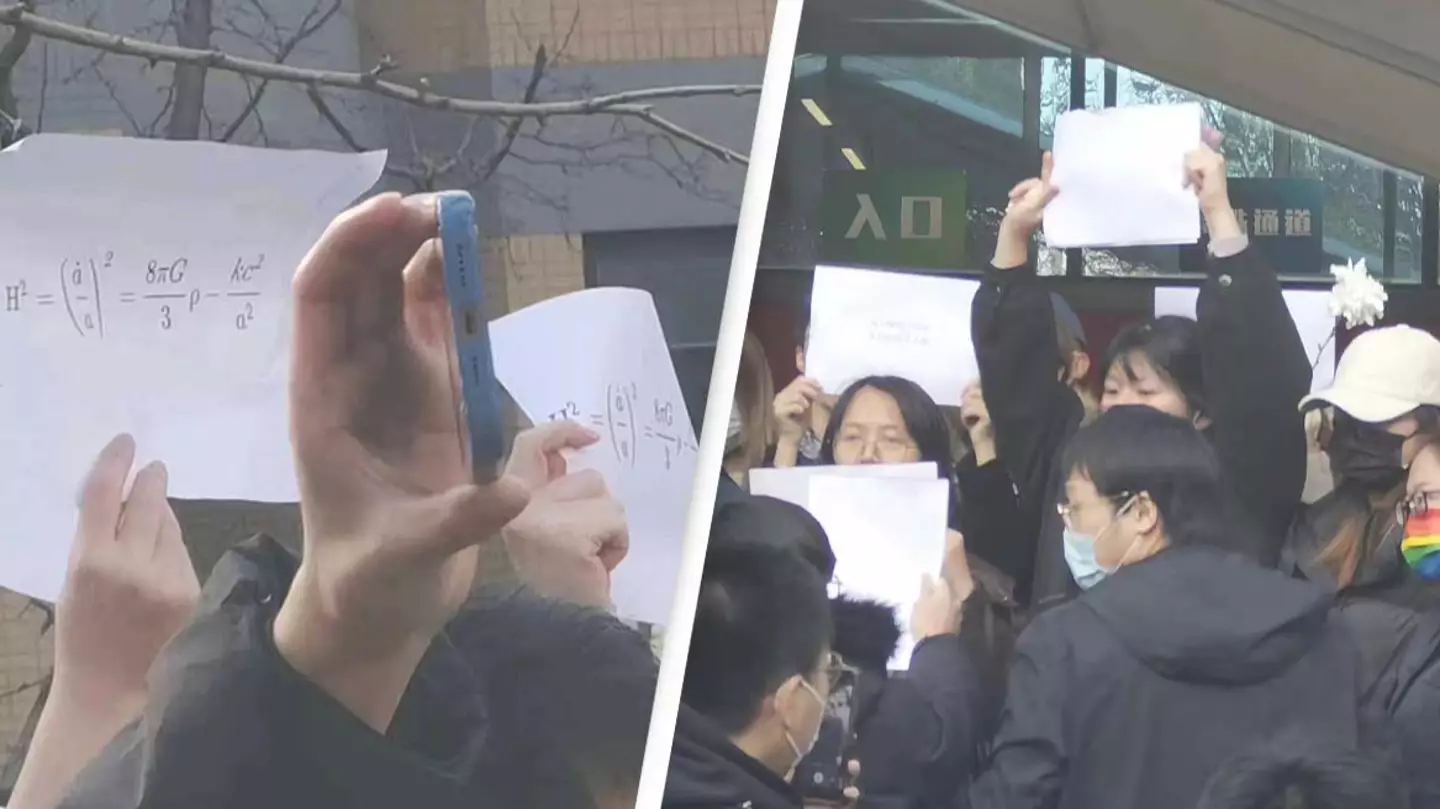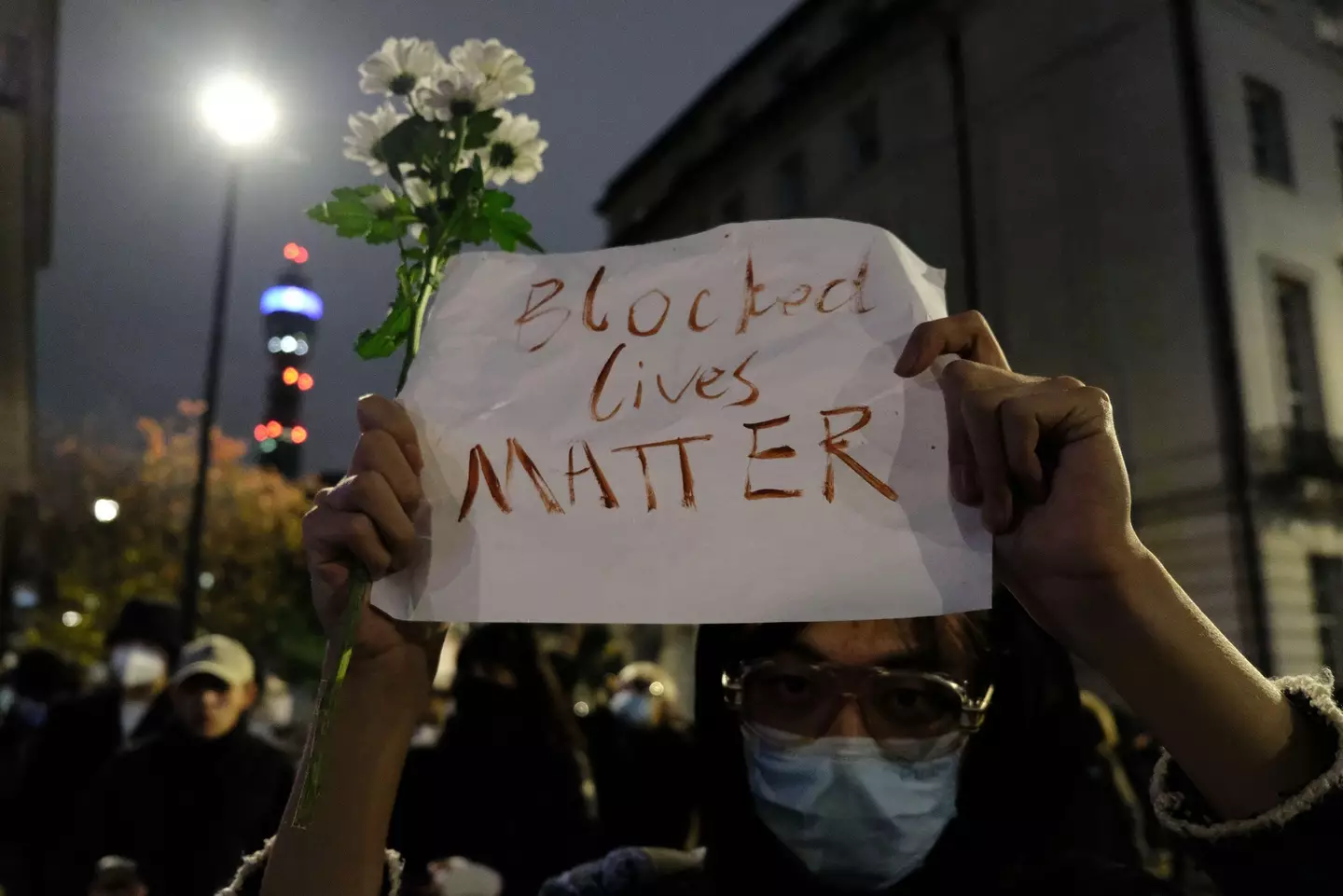
There have been widespread protests across China over strict Covid measures, and demonstrators have been getting creative.
The country remains committed to a 'zero-Covid' approach - which has left millions confined to their homes - despite the most widespread display of opposition to the ruling Communist Party in decades.
Among the crowds, people have been holding aloft signs featuring an equation, and Hong Kong activist Nathan Law offered an explanation of what it represents.
He tweeted: "Students from the elite school Tsinghua University protested with Friedmann equation.
Advert
"I have no idea what this equation means, but it does not matter.
"It's the pronunciation: it's similar to 'free的man' (free man)—a spectacular and creative way to express, with intelligence."
However, others who do understand the equation have suggested it could have a different - or additional - meaning, as it relates to the expansion, or opening up, of the universe.
One proponent of this theory tweeted: "Tsinghua students, true to form, protesting lockdowns with the Friedmann Equation: the basic reality of the universe is constant, eternal expansion, or put another way, opening up."
Chinese authorities have affirmed their commitment to a severe zero-Covid strategy after crowds demanded the resignation of President Xi Jinping.
The government made no comment on the protests or criticism of Xi. There was also no official word on how many people were detained after police used pepper spray against protesters in Shanghai and struggled to suppress demonstrations in other cities including the capital, Beijing.
Officials have eased anti-virus rules in some scattered areas, such as Urumqi and the city of Korla in Xinjiang.
In Beijing, the city government announced it would no longer set up gates to block access to apartment compounds where infections are found.
It made no mention of a deadly fire last week that triggered the protests following angry questions online about whether firefighters or victims trying to escape were blocked by locked doors or other anti-virus controls.

A city official in charge of epidemic control told the official China News Service: "Passages must remain clear for medical transportation, emergency escapes and rescues."
China's zero-Covid strategy, which aims to isolate every infected person, has helped to keep the country's case numbers lower than those of the United States and other major countries.
But people in some areas have been confined to their homes for up to four months, and say they lack reliable food supplies.
The ruling party promised last month to reduce the disruption of zero-Covid by changing quarantine and other rules.
But public acceptance is wearing thin after a spike in infections prompted cities to tighten controls, fuelling complaints that overzealous enforcement is hurting the public.
Topics: News, China, Coronavirus